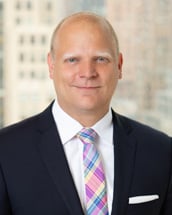The uncertain future of Private Fund Adviser regulation
In brief
On 5 June 2024, the United States Court of Appeals for the Fifth Circuit vacated the Private Fund Adviser rule (“Rule“) in its entirety on the grounds that the SEC, in enacting the Rule, had exceeded its statutory authority. The Rule was adopted by the SEC in August 2023 and would have fundamentally changed the regulatory landscape for private equity funds and their investors. The outcome was somewhat unexpected as in oral arguments the petitioners only directly challenged three of the five provisions that make-up the Rule and there was significant discussion as to whether the five provisions of the Rule should be considered a single rule or if the five provisions should be considered separately. This led many to predict that the Court would vacate the Rule only in part.
The SEC now must consider whether to appeal the Fifth Circuit’s decision or propose a more limited version of the Rule.
The Fifth Circuit decision is the latest in a trend of decisions by US federal courts narrowing the scope of regulatory authority. Additional rules adopted by the SEC and other federal agencies may also be vulnerable.
Key takeaways
The Fifth Circuit’s decision to vacate the Private Fund Adviser rule is a significant setback for the SEC: the Rule, as adopted, will not go into effect. It is unclear and perhaps unlikely that the SEC has any viable argument to appeal this decision, and it will face an uphill battle to revise the Rule in a manner that addresses the Fifth Circuit’s determination that the SEC lacked statutory authority to adopt the Rule. We will keep you informed of future developments.
In more detail
1. The Private Fund Adviser Rule:
On 23 August 2023, the SEC adopted the Private Fund Adviser rule (“Rule“), fundamentally changing the regulatory landscape for private equity funds and their investors. The Rule, which would have applied to both US and some Non-US Fund Managers, was made up of the following five provisions:
- The restricted activities rule, prohibiting private fund advisers from engaging in certain activities deemed contrary to the public interest without disclosure to and, in some cases, consent from investors.
- The preferential treatment rule, prohibiting private fund advisers from granting investors preferential redemption or access to specific kinds of information where such advisers “reasonably expect” the result of the preferential treatment will have a material, negative effect on other investors in the fund, subject to limited exceptions.
- The adviser-led secondaries rule, requiring registered investment advisers conducting an adviser-led secondary transaction to distribute to investors a fairness opinion or evaluation opinion.
- The private fund audit rule, requiring registered investment advisers to have their private fund clients undergo a financial statement audit within the requirements of the Custody Rule (rule 206(4)-2).
- The quarterly statements rule, requiring registered investment advisers to provide quarterly statements to private fund investors regarding the costs and performance of the fund.
In September 2023, The National Association of Private Fund Managers and other interest groups challenged the Private Fund Adviser rule in the Fifth Circuit.
The interest groups’ challenge to the Private Fund Adviser rule was among the latest in a series of challenges against Biden administration policies that have been brought in the Fifth Circuit. The three-judge Fifth Circuit panel, consisting of Judges Southwick (a George W. Bush appointee), Engelhardt (a Trump appointee), and Wilson (a Trump appointee), issued its decision to vacate the Private Fund Adviser rule on 5 June 2024.
2. The Scope of the Challenge:
In their petition, the interest groups challenged the Rule as a single Rule rather than treating its five provisions separately. This tactical decision was ultimately crucial for the Fifth Circuit’s decision.
The interest groups argued that the Rule exceeded the SEC’s statutory authority under the two statutes upon which the SEC relied: Section 913 of the Dodd-Frank Act, codified at Section 211(h) in the Advisers Act, and Section 206(4) of the Advisers Act. Specifically, the petitioners argued that:
- With respect to Section 211(h) of the Advisers Act, Congress did not intend for the statute to apply to private fund advisers.
- With respect to Section 206(4) of the Advisers Act, the SEC had not sufficiently developed the factual basis for fraud which would justify the adoption Rule.
- The SEC contravened congressional intent with respect to the governance of private funds and therefore ran afoul of the Major Questions Doctrine, which states that while Congress may delegate authority to agencies, where such agency (such as the SEC) seeks to resolve questions of national significance, it must have clear congressional authorization to do so.
- The SEC had failed to provide the public with a meaningful opportunity to comment during the rulemaking process.
- Certain of the Private Fund Adviser rule’s provisions (the restricted activities rule, the preferential treatment rule, and the quarterly statements rule) were unnecessary and unduly burdensome.
On the basis of the arguments above, the petitioners requested that the Fifth Circuit vacate all five provisions of the Private Fund Adviser rule.
Oral arguments were heard on 5 February, 2024. Some of the issues discussed during oral arguments included:
- Whether the SEC lacked statutory authority under both Section 211(h) of the Advisers Act and Section 206(4) of the Advisers Act to promulgate the Rule.
- Whether, if the SEC was found to possess the statutory authority to promulgate the Rule solely by virtue of the Section 206(4) antifraud provision, the SEC had sufficiently developed the factual background for fraud which it contended the Rule was intended to address.
- Whether a finding that the SEC lacked such a factual background would result in the panel requesting additional factual development or would instead support the petitioners’ argument for vacating the Rule.
- Whether the Rule should be treated as a single rule, such that a decision to vacate would apply to all five of its provisions, or whether its provisions should be considered independently.
- Whether, if the court treated the Rule provisions separately, a ruling in favor of the petitioners on the basis of the rule being unnecessary and burdensome (an argument which the petitioners made solely with respect to three of the provisions) would result in the panel vacating those three provisions while leaving the others intact.
On 5 June 2024, the Fifth Circuit vacated all five provisions of the Rule. The court held that:
- Section 913 of the Dodd-Frank Act applies to “retail customers,” not private fund investors. Thus, Section 211(h) of the Advisers Act also applies to “retail customers,” and the SEC exceeded its statutory authority in relying on Section 211(h) to adopt the Rule.
- Because the SEC failed to articulate a “rational connection” between fraud and the Rule, and the Rule does not fit within the text or aims of the statutory design, the SEC also lacked the authority to adopt the Rule under Section 206(4) of the Advisers Act.
Accordingly, relying on Section 706 of the APA, the Fifth Circuit vacated the Rule.
3. The Likely Aftermath of the Fifth Circuit Decision:
The decision by the Fifth Circuit to vacate the Private Fund Adviser rule indicates that the Rule will not go into effect according to the SEC’s previously established timeline. The SEC must now evaluate its options to appeal the Fifth Circuit’s ruling or to consider a more limited iteration of the Rule.
If the SEC chooses to appeal the Fifth Circuit’s ruling, it may do so by petitioning for a rehearing en banc (by all judges) within the Fifth Circuit or by petitioning for Supreme Court review. Both forms of appellate review are discretionary, and thus the timeline for ultimate resolution of the claims is currently unknown. The appellate review process may extend beyond 15 September 2024, when the adviser-led secondaries, preferential treatment, and restricted activities rules were scheduled to go into effect for Large Advisers (those with over USD 1.5 billion in regulatory assets under management attributable to private funds).
The ruling likely ends the SEC’s attempt to use Section 211 to police private fund advisers. But the SEC could conceivably repropose a more limited version of the Rule in reliance on its traditional Section 206(4) authority. To do so, the SEC would likely attempt to establish a more direct link between a re-proposed rule and more tangible fraud considerations. It remains to be seen whether the agency wishes to pursue that battle, or attempt to follow Chair Gensler’s other regulatory priorities. The ruling will undoubtedly provide a roadmap for future challenges to SEC authority.
* * * * *
Related content: United States: The SEC’s new Private Fund Adviser rules











